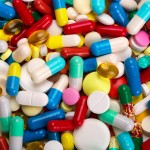
Despite improvements in oral health tooth extraction tooth extraction remains a common surgical procedure. The majority of extractions are undertaken by general dental practitioners because of caries or periodontal disease with the highest rate being seen in patients in their 60s and 70s. Post tooth extraction complications include pain, swelling, trismus, fever, and dry socket although the incidence of postoperative infection is relatively low.
The aim of this Cochrane review was to determine the effect of systemic antibiotic prophylaxis on the prevention of infectious complications following tooth extractions.
Methods
Searches were conducted in the Cochrane Oral Health Trials Register, the Cochrane Central Register of Controlled Trials (CENTRAL), Medline, Embase, LILACS, The US National Institutes of Health Trials Registry (ClinicalTrials.gov) and the World Health Organization International Clinical Trials Registry Platform databases with no restrictions on date or language. Randomised placebo-controlled trials (RCTs) of systemic antibiotic prophylaxis in patients undergoing tooth extraction(s) for any indication were considered. Data abstraction and risk of bias assessment was carried out by at least two reviewers independently. Risk ratios (RR) and 95% confidence intervals (CI) were calculated for dichotomous outcomes and mean differences (MD) with 95% CI for continuous outcomes. The certainty of evidence was assessed using the GRADE approach.
Results
- 23 trials randomising 3206 patients to prophylactic antibiotics or placebo were included (2538 analysed).
- 16 trials were at high risk of bias, 3 low risk and 4 at unclear risk.
- Meta-analysis showed that compared to placebo antibiotics may
- reduce the risk of post-surgical infectious complications in patients undergoing third molar extractions by approximately 66%, RR = 0.34 (95%CI; 0.19 to 0.64) [12 studies,1727 patients, low-certainty evidence] i.e., the number needed to treat (NNT) = 19 (95%CI; 15 to 34).
- Reduce the risk of dry socket by 34%, RR = 0.66 (95%CI; 0.45 to 0.97) [13 studies,1882 patients, low-certainty evidence] i.e., the NNT = 46 (95%CI; 29 to 62).
- The evidence for our other outcomes is uncertain (see table).
| No. of studies (patients) | RR or MD | 95% CI | |
| Pain (present/absent) | 3 (675) | RR = 0.59 | 0.31 to 1.12 |
| Pain (VAS)* | 4 (422) | MD= −0.26 | −0.59 to 0.07 |
| Fever | 4 (475) | RR = 0.66 | 0.24 to 1.79 |
| Adverse effects | 8 (1277) | RR = 1.46 | 0.81 to 2.64 |
*(VAS) visual analogue scale (0-to-10-centimetre scale, where 0 is no pain)
- There was no clear evidence that the timing of antibiotic administration (preoperative, postoperative, or both) was important.
- The included studies involved healthy people who had surgical extraction of third molars so the results may not be generalisable to all people undergoing tooth extractions.
Conclusions
The authors concluded: –
The vast majority (21 out of 23) of the trials included in this review included only healthy patients undergoing extraction of impacted third molars, often performed by oral surgeons. None of the studies evaluated tooth extraction in immunocompromised patients. We found low-certainty evidence that prophylactic antibiotics may reduce the risk of infection and dry socket following third molar extraction when compared to placebo, and very low-certainty evidence of no increase in the risk of adverse effects. On average, treating 19 healthy patients with prophylactic antibiotics may stop one person from getting an infection. It is unclear whether the evidence in this review is generalisable to patients with concomitant illnesses or patients at a higher risk of infection.
Due to the increasing prevalence of bacteria that are resistant to antibiotic treatment, clinicians should evaluate if and when to prescribe prophylactic antibiotic therapy before a dental extraction for each patient on the basis of the patient’s clinical conditions (healthy or affected by systemic pathology) and level of risk from infective complications. Immunocompromised patients, in particular, need an individualised approach in consultation with their treating medical specialist.
Comments
This review was undertaken following the standard Cochrane methodology updating the earlier version published in 2012 ( Dental Elf – 15th Nov 2012). As the authors highlight while tooth extraction is a common procedure only one of the included studies investigated simple exactions. The majority (91%) investigated the extraction of impacted third molars and all of these involved health patients which raises issues in relation to generalisability. In addition, 16 out of 23 (of the included studies were considered to be at high risk of bias, the most common sources of bias being missing outcome data and selective reporting.
The findings indicate that 19 patients (95%CI; 15 to 34) would need to be treated with antibiotics to prevent one infection following extraction of impacted wisdom teeth and 46 patients (95%CI; 29 to 62) to prevent one case of dry socket. In deciding to prescribe antibiotics both the potential benefit to the patients and the risks need to be taken into consideration. The review findings indicate that one adverse event may be seen for the prescription of antibiotics for every 32 patients treated (95%CI; 9-77) although these were transient and mild. There is also the broader concern related to the increase in antimicrobial resistance with dental prescribing accounting for 7-10% of primary care prescribing.
Links
Primary Paper
Other references
Dental Elf – 15th Nov 2012
